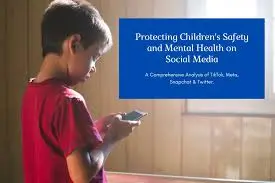On the horizon of the Missouri education landscape, a pivotal event is set to unfold. Scheduled for Tuesday, the Missouri Board of Education is poised to delve into the pressing issue of children’s mental health. Spearheaded by Valerie Huhn, Director of the Missouri Department of Mental Health, and Margie Vandeven, the State Education Commissioner, this presentation promises to shed light on a critical aspect of our society.
Recent findings from the Missouri Department of Mental Health paint a stark picture of the digital age’s impact on our youth. Astonishingly, nearly a third of teenagers now admit to being tethered to social media almost ceaselessly, a figure that has surged twofold since 2015. Delving deeper, the agency reveals a troubling correlation: adolescents spending over three hours daily on social platforms are confronted with a doubled risk of grappling with mental health issues, such as the ominous shadows of depression and anxiety. Furthermore, the shadows of social isolation loom ominously over our younger generations, with young adults bearing the weight of loneliness nearly twice as much as their elder counterparts.
Armed with these insights, the Missouri Department of Mental Health is poised to unfurl a tapestry of recommendations to tackle the burgeoning crisis. At the forefront lies the proposal to carve out tech-free sanctuaries, beckoning children to forge genuine connections beyond the digital veil. Additionally, the clarion call to model responsible social media conduct reverberates through the corridors of policymaking, alongside a concerted push to fortify mental health programs within educational institutions. A concrete investment to increase the number of social workers and school counselors is evidence of the state’s dedication to fostering the overall well-being of the children who will be raising them.
We must respond to these calls for action because we are on the verge of transformation. Armed with information and empathy, let us set out on this road to protect our youth’s mental toughness and create a better future for future generations.
Statistics and Sources:
- The Missouri Department of Mental Health reveals that nearly one-third of teenagers now confess to being ensnared by social media almost perpetually, marking a twofold increase since 2015.
- Adolescents spending over three hours daily on social platforms face a doubled risk of grappling with mental health issues, according to the Missouri Department of Mental Health.
- Young adults bear the weight of loneliness nearly twice as much as their elder counterparts, as per the findings of the Missouri Department of Mental Health.
Review: Is Social Media Harming Our Children’s Mental Well-being?
As a pro psychologist with a penchant for unraveling the intricacies of human relationships, I could not help but delve into the latest news regarding the impact of social media on our kids’s mental fitness. It’s a subject that moves a chord with me individually, as I’ve witnessed firsthand the profound impact of digital platforms on the psyche of today’s adolescents.
Just last week, at some stage in a counseling consultation with a teenage patron, I was struck with the aid of the depth of her loneliness and tension, which she attributed to her constant scrolling through social media feeds. It becomes a poignant reminder of the pervasive attain of the era and its capability to form our emotional landscape.
Fresh survey data corroborates these observations, with the Missouri Department of Mental Health revealing alarming statistics on the prevalence of social media utilization among teenagers. The doubling of time spent on social platforms for the reason that 2015 is a concerning fashion, especially considering the associated dangers of depression and tension.
But amidst the gloom, there may be a wish. The branch’s recommendation to establish tech-unfastened zones and promote face-to-face interactions resonates deeply with my expert ethos. Building true connections and fostering meaningful relationships offline can serve as a powerful antidote to the digital malaise plaguing our teens.
As I mirror this information, I’m reminded of the significance of stability in our lives. While social media gives plain blessings, including connectivity and facts sharing, we must stay vigilant about its ability pitfalls. By prioritizing actual global connections and nurturing our mental well-being, we will navigate the virtual landscape with resilience and beauty.
In addition to studying this topic, I recommend exploring the complete file via the Missouri Department of Mental Health, which sheds mild on the multifaceted courting between social media and intellectual health. Link to the report.
Learn more

Sarah Andrews’ work on relationships is informed by a breadth of experience and a strong interest in human nature. Sarah, who holds a Psychology degree and has a good eye for nuances, delves into the complexity of communication and emotion, delivering insightful insights for readers seeking personal growth and emotional pleasure. Sarah hopes that her empathic approach and insightful suggestions will motivate readers to understand themselves and their relationships better.
